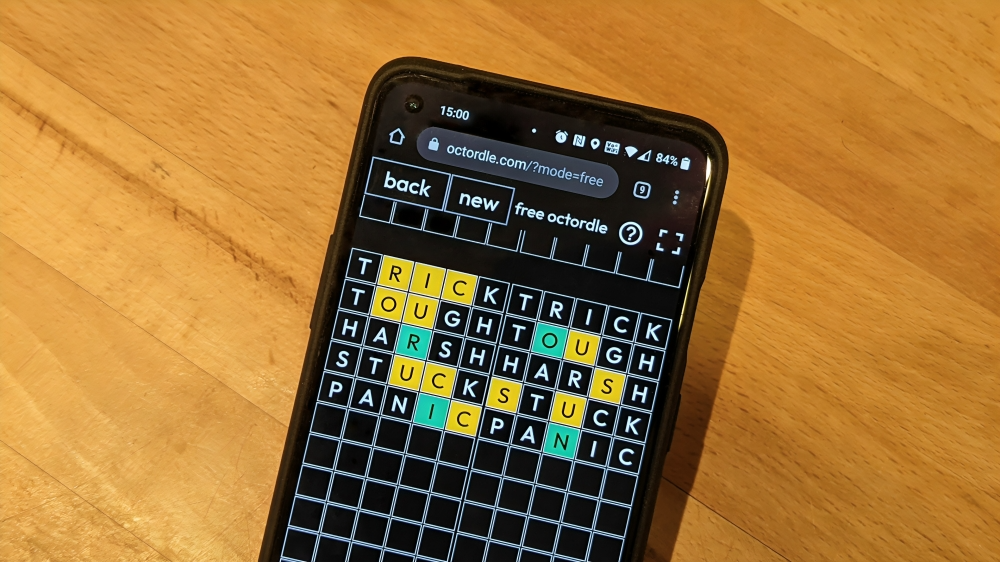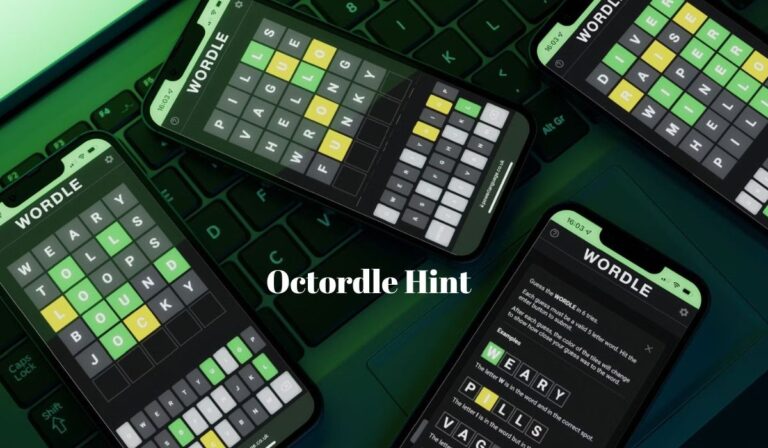Puzzle games have seen a surge in popularity over the past few years, with titles like Wordle capturing the attention of millions of players worldwide. However, for those seeking a more complex challenge, Octordle is a game that has quickly risen to prominence. As a derivative of the popular Wordle, Octordle takes the basic premise of word guessing and amplifies it by offering players eight different grids to solve simultaneously.
This added layer of difficulty makes the game both engaging and challenging, and it has garnered a loyal fanbase. For new players and veterans alike, mastering the art of solving these eight puzzles can seem daunting. That’s where Octordle hint strategies come into play, offering vital assistance to tackle even the most challenging puzzles.
Understanding Octordle: The Basics
Before diving into specific hint strategies, it’s crucial to understand the basic mechanics of Octordle. Each game starts with eight grids with a five-letter word to guess. Players have 13 attempts to solve all eight words. For each guess, you input a five-letter word, and the game provides feedback on how many letters are correct and in the proper position (marked green), correct but in the wrong position (marked yellow), or incorrect altogether (marked grey).
The challenge of Octordle lies in balancing your focus across all eight grids. Unlike Wordle, where you can afford to focus on one word at a time, Octordle requires you to consider the implications of each guess across multiple puzzles. This complexity makes it easy to miss potential clues or become overwhelmed by the sheer volume of information. Therefore, efficient use of hints and strategies is critical to solving all eight words within the given attempts.
Start with a Strong Base Word: The Importance of Your First Guess
Selecting the first word is one of the most crucial aspects of any word puzzle game, and Octordle is no exception. Starting with a strong base word is essential for maximizing your chances of solving the puzzles efficiently. A good starting word should have the following characteristics:
Contains Common Letters: The word should include frequently occurring letters like E, A, R, I, O, T, N, and S. These letters appear in many English words, so starting with a word that uses these letters increases the likelihood of getting helpful feedback early on.
Avoids Repeating Letters: While using words with double letters may be tempting, choosing words with unique letters is usually more effective. Octordle Hint This approach helps you gather more information across the eight grids.
Balanced Vowel and Consonant Mix: A word with a good mix of vowels and consonants ensures you’re testing a wide range of possibilities right from the start.
A popular choice for an initial guess is “ARISE” because it contains three vowels and two common consonants. However, players may develop their preferences based on personal experience and the types of words they commonly encounter.
Analyzing the Feedback: Octordle Hint Deciphering Clues Efficiently
Once you’ve entered your first guess, the game provides feedback across all eight grids. Analyzing this feedback efficiently is where Octordle Hint truly challenges your cognitive abilities. Here’s how to optimize your approach:
Focus on the Grids with the Most Feedback: Start by prioritizing the grids where you’ve received the most feedback (i.e., grids with multiple green or yellow letters). These grids are closer to being solved and can provide more specific letters to test on other grids.
Cross-Reference Letters: As you gain feedback from each grid, begin cross-referencing letters. For example, if the letter ‘R’ is green in one grid and yellow in another, you know it’s a part of both words but in different positions. This information helps you eliminate possibilities and refine your guesses on other grids.
Don’t Tunnel Vision on One Grid: Getting fixated on a single grid is easy, especially if you’re close to solving it. However, maintaining a broad view of all eight grids is essential. Sometimes, the feedback from one grid can inform a more strategic guess on another, leading to a breakthrough.
Crafting Subsequent Guesses: Balancing Risk and Reward

As you continue playing, your subsequent guesses will confirm or refine the information you’ve gathered. This phase of the game involves a delicate balance of risk and reward. Here’s how to navigate it:
Use Known Letters Wisely: If you’ve identified letters that are part of multiple words, try using them in different positions across the grids where they still need to be confirmed. Octordle Hint This approach can quickly narrow down the possibilities and reveal the correct positions.
Consider Word Patterns: English words often follow specific patterns, especially with common suffixes or prefixes. If you’re struggling with a word, consider whether it might end in -ING, -ED, or -TION. These patterns can provide valuable clues, especially when missing only one or two letters.
Be Cautious with Wild Guesses: While it can be tempting to throw out a guess that feels right, remember that each guess impacts all eight grids. Wild guesses can backfire if they don’t provide helpful feedback. It’s better to make educated guesses that test specific letters or positions, even if you need clarification on the whole word.
Leveraging Advanced Strategies: Pattern Recognition and Elimination
For more experienced players,Octordle Hint offers opportunities to apply advanced strategies that can significantly improve your chances of success. These strategies require a deeper understanding of word structures and a keen eye for patterns.
Letter Frequency Analysis: As you gather more feedback, consider the frequency of certain letters in English words. For example, letters like Q, X, and Z are less common, so they may be easier to pinpoint when they appear. Conversely, letters like E and A appear so frequently that careful analysis can make them easier to narrow down.
Partial Word Solutions: Sometimes, you solve part of a word without knowing the entire answer. Use your partial solutions to test different endings or beginnings in these cases. For example, if you’ve identified “S__LE” on one grid, consider possible words like “SCALE,” “SUELE,” or “SMILE.” This method allows you to confirm or eliminate possibilities quickly.
Elimination by Exclusion: As you progress, certain letters will be ruled out for specific positions based on previous feedback. Keep a mental (or written) note of these exclusions to avoid repeating the same mistakes and to streamline your guesses. Over time, this process of elimination will narrow down your options significantly.
Managing Time and Stress: Staying Calm Under Pressure
One often overlooked aspect of Octordle is the psychological challenge it presents. The pressure can mount quickly with eight grids to solve and only 13 guesses. Managing this stress is crucial for making sound decisions and maintaining focus.
Pace Yourself: It’s easy to feel rushed significantly as your guesses dwindle. However, taking a moment to consider your next move can prevent costly errors carefully. Remember that each guess is an opportunity to gather more information, so use them wisely.
Stay Flexible: As the game progresses, you may need to adjust your strategy based on the feedback you receive. Staying flexible and open to new possibilities is critical to solving all eight grids. Feel free to abandon a line of thinking if it’s not yielding results.
Practice Mindfulness: Take a short break if you are frustrated or overwhelmed. A brief pause can clear your mind and allow you to return to the game with a fresh perspective. Over time, this mindfulness can help you build resilience and improve your overall gameplay.
Conclusion
Octordle is more than just a puzzle game; it tests your cognitive abilities, strategic thinking, and psychological endurance. By employing the hint strategies outlined in this guide, you can significantly improve your chances of solving all eight grids and mastering the game. Octordle Hint From choosing a strong starting word to analyzing feedback and leveraging advanced techniques, every step of the process is an opportunity to refine your skills.
As with any game, practice is essential. The more you play Octordle, the more familiar you’ll become with common word patterns, letter frequencies, and the game’s overall flow. With time and experience, you’ll develop personalized strategies that align with your strengths and preferences. Whether playing for fun or aiming to become an Octordle pro, these strategies will set you on the path to success.
So, next time you face the challenge of Octordle, remember the importance of a strong start, thoughtful analysis, and a balanced approach to risk and reward. With these strategies, you can tackle the game’s most difficult puzzles and emerge victorious. Happy puzzling!


